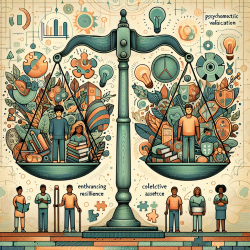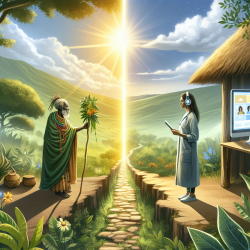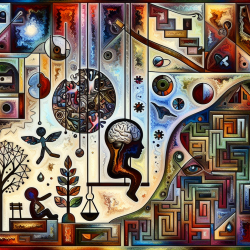Understanding Utu and Its Role in Adolescent Resilience
Utu, a Kiswahili term, is deeply rooted in Tanzanian culture and represents a value system of shared humanity. This concept is not just a philosophical ideology but a multidimensional asset that encompasses respect, dignity, resource sharing, solidarity, compassion, and empathy. The recent study titled "Psychometric validation of the collective asset Utu: associations with coping strategies and resilience during adolescence" provides valuable insights into how Utu can be a significant factor in promoting resilience among adolescents.
Key Findings of the Study
The study validated a five-dimensional measurement scale for Utu, identifying the constructs of Resource Sharing, Group Solidarity, Respect and Dignity, Collectivity, and Compassion. The research demonstrated that Utu is positively associated with coping strategies and resilience, indicating that adolescents with higher levels of Utu report greater resilience. Interestingly, Utu was not significantly associated with adverse life experiences, suggesting its role as an independent protective factor.
Implications for Practitioners
Practitioners working with adolescents can leverage the findings of this study to enhance their interventions. Here are some practical steps:
- Integrate Utu into Programs: Develop programs that incorporate the principles of Utu, focusing on building community and collective assets. This can foster a supportive environment that enhances resilience.
- Focus on Community Engagement: Encourage activities that promote group solidarity and resource sharing. This can be achieved through group projects or community service initiatives that emphasize collective well-being.
- Promote Respect and Dignity: Create a culture of respect within educational settings. This can be done by modeling respectful interactions and teaching students about the importance of dignity in interpersonal relationships.
Encouraging Further Research
While this study provides a foundational understanding of Utu, further research is needed to explore its application in different cultural contexts and its long-term impact on adolescent development. Practitioners are encouraged to contribute to this growing field by conducting their own studies and sharing findings with the broader community.
Conclusion
Utu, as a collective asset, holds significant potential for enhancing resilience in adolescents. By integrating Utu into educational and therapeutic practices, practitioners can create environments that support the holistic development of young individuals. The study's findings underscore the importance of community-focused interventions and the power of shared humanity in fostering resilience.
To read the original research paper, please follow this link: Psychometric validation of the collective asset Utu: associations with coping strategies and resilience during adolescence.










